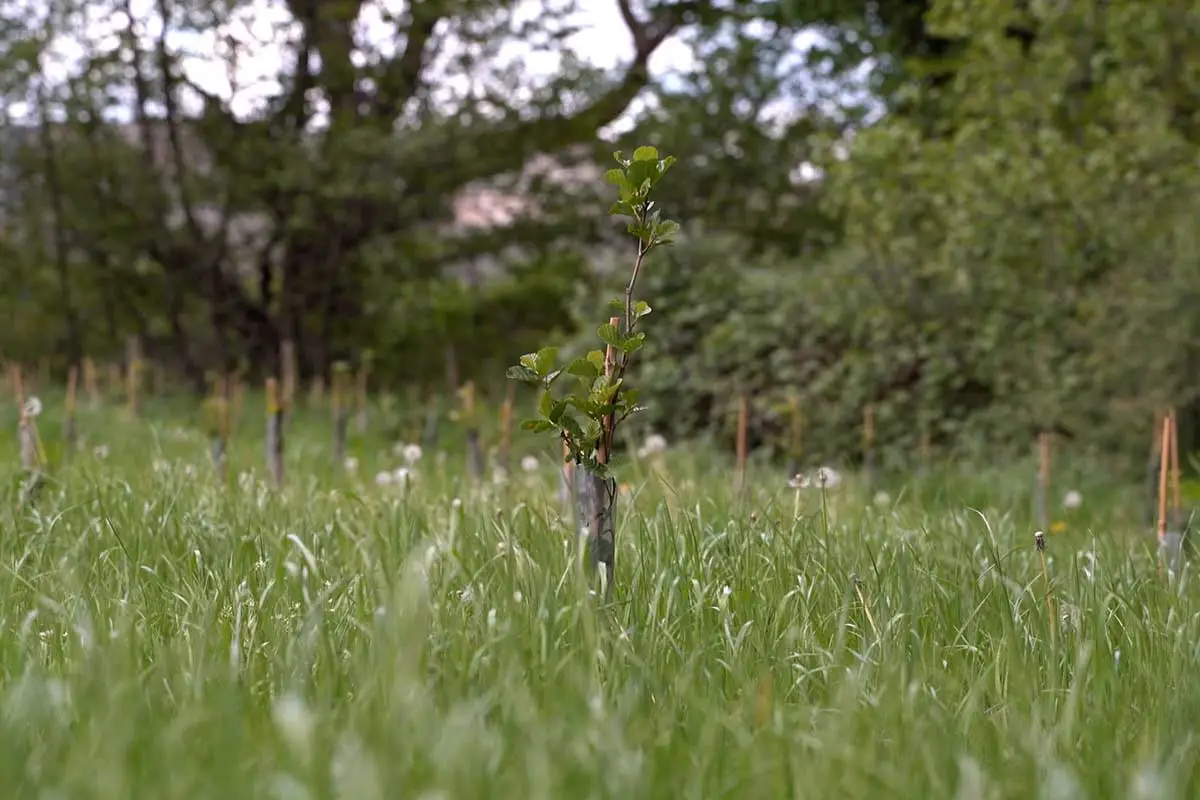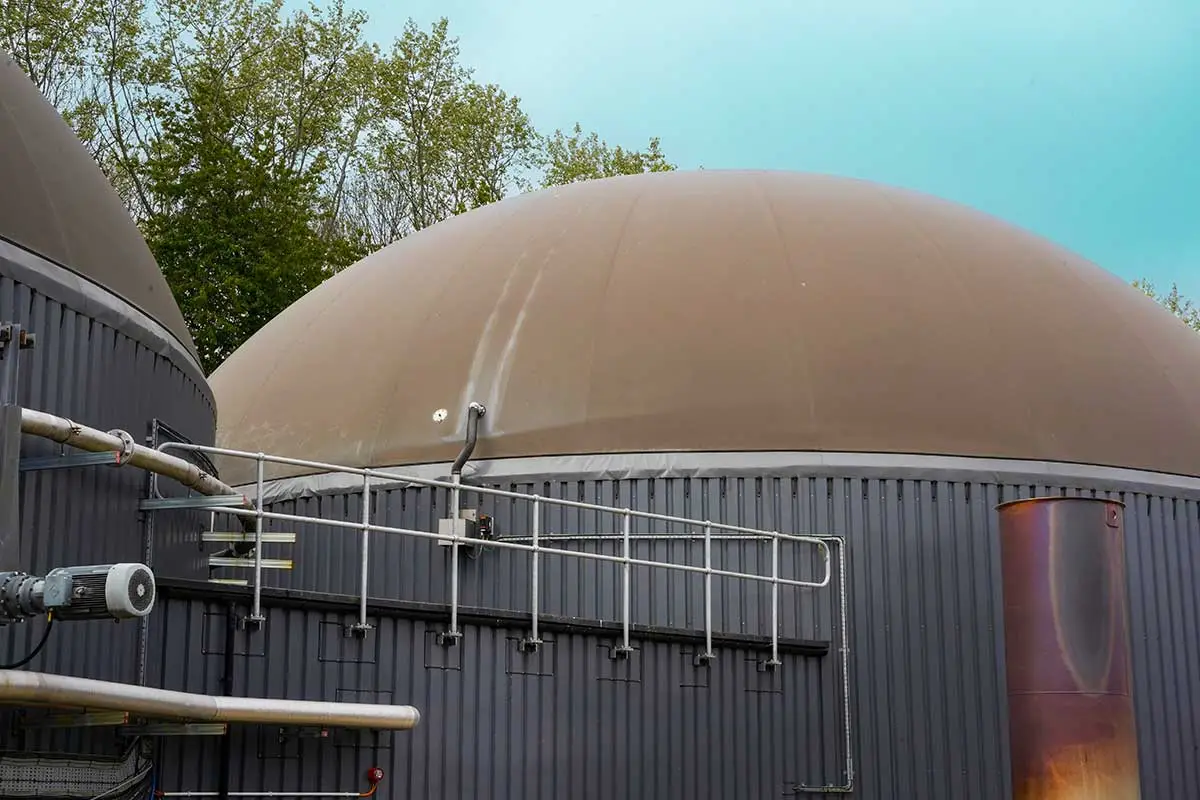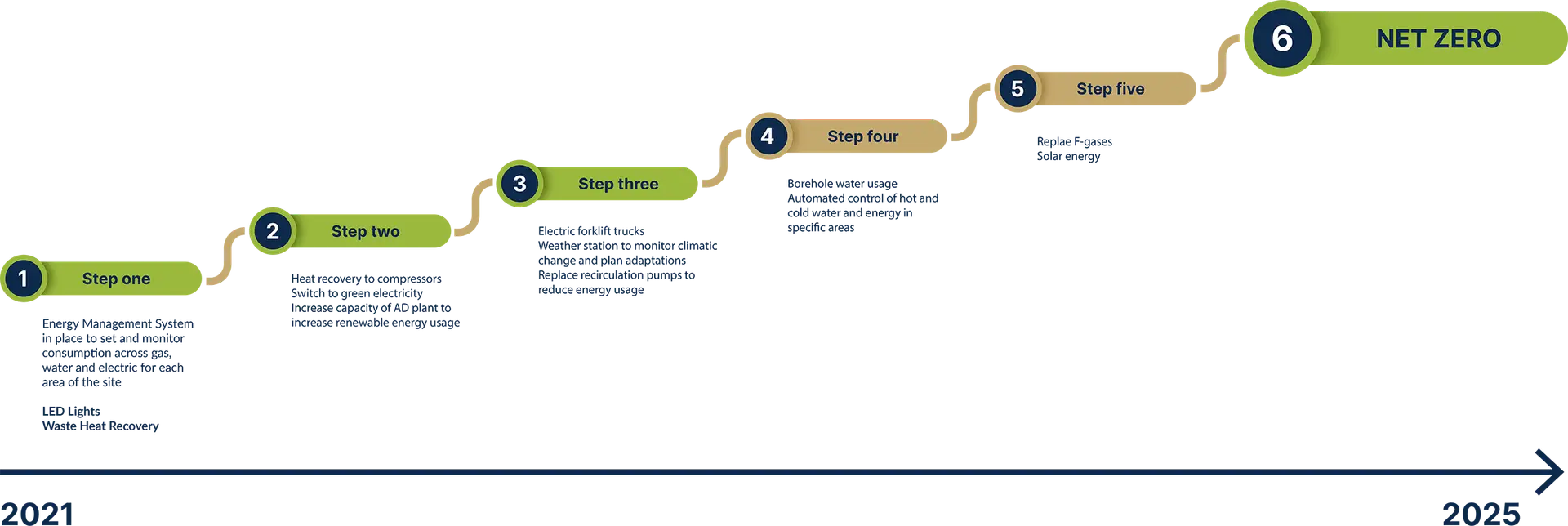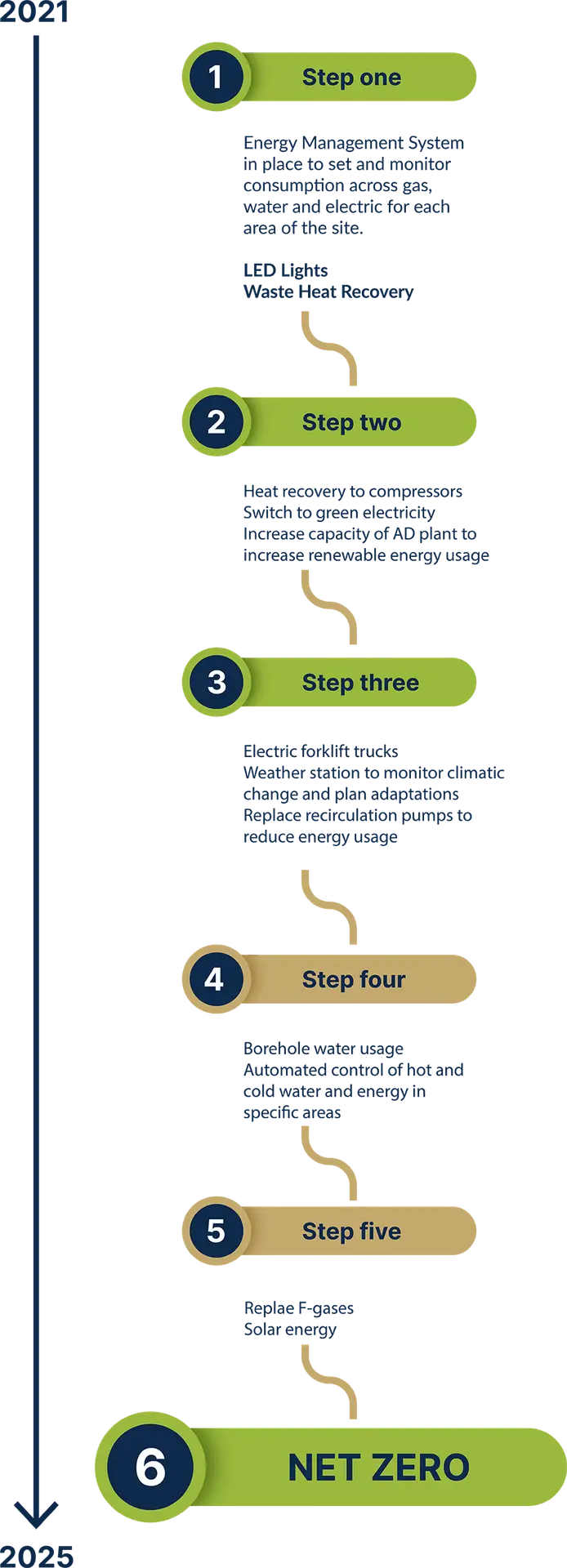
Developing a sustainable system of beef production is one of our priorities, and this is why we have established Brongain Farm as a centre of excellence. Partnering with industry experts, the team at Brongain are looking at ways of reducing greenhouse gas emissions in beef farming.
Trials are ongoing at the farm and we are always open to sharing the findings of our research, hosting discussion groups, Young Farmers Clubs and schools throughout the year.

Our Telford facility uses an anaerobic digester, to convert waste into heat to warm the water on site, while producing 80% of the sites electricity needs. The digestate is nutrient-rich and used as fertiliser on local farms.
Through rainwater harvesting, we save 43,054,000 litres of water per year, that’s enough to fill 17 Olympic sized swimming pools.
We are working towards our goal of achieving packaging solutions which are 100% recyclable, reusable or compostable. Our cardboard is FSC certified and to minimise plastics, we are working with supply partners to pack into renewable solutions such as returnable crates and thinner films.

Agriculture has an ambitious goal of reaching net zero greenhouse gas emissions by 2040.
With your help, we have the opportunity to update this industry figure and showcase the environmental credentials of British dairy and beef farming. Carbon footprinting is a great way to provide evidence for this, assessing our current position and highlighting areas we can improve on.
Pickstock, in partnership with Promar International and McDonald’s, are running carbon footprinting for 250 English suppliers, using Defra resilience funding.
Carbon footprinting is just one tool in the box. Practical steps that we can take to progress towards agriculture’s goal of reaching net zero emissions by 2040 are through the use of genetics, nutrient management, sustainable feed, improved grassland management and animal health. A decreased carbon footprint also directly links to farm productivity and profitability, as we are seeing at Brongain Farm.
You will be given a form to consent for us to use your SBI number, slaughter numbers and contact your nutritionist if you wish – we do the work for you to shorten the time of your audit.
The project will include an hour long carbon audit using Agrecalc.
All you will need to provide is cropping areas and yields (including grassland); fertiliser usage, purchased feed; animal numbers; bedding and fuel.
Receive a report highlighting your strengths and suggestions for improvement. £100 compensation for your time.


At Pickstock, we are committed to conducting business with integrity, fairness and transparency at every level of our operations. We believe in doing things properly. This means not only producing high-quality British beef, but also upholding the highest standards of business ethics.
Pickstock is committed to acting professionally, fairly and with integrity in all our business dealings and relationships, wherever we operate, and to implementing and enforcing effective systems to counter bribery. We remain bound by the laws of the UK, including the Bribery Act 2010, in respect of our conduct both at home and abroad.
We have a zero-tolerance approach to bribery and corruption. All employees, suppliers, and partners are expected to act honestly and responsibly, ensuring that every decision we make is based on merit, fairness and respect for the law.
As part of our commitment, we also support the principles of the Ethical Trading Initiative (ETI) Base Code, which sets globally recognised standards for labour practices. This includes ensuring safe working conditions, fair pay, respect for workers’ rights and equal opportunities for all.
By working to these standards, we aim to build trust with our customers, partners and colleagues, while contributing to a fair and sustainable supply chain.
At Pickstock, doing the right thing isn’t optional. It’s how we do business.